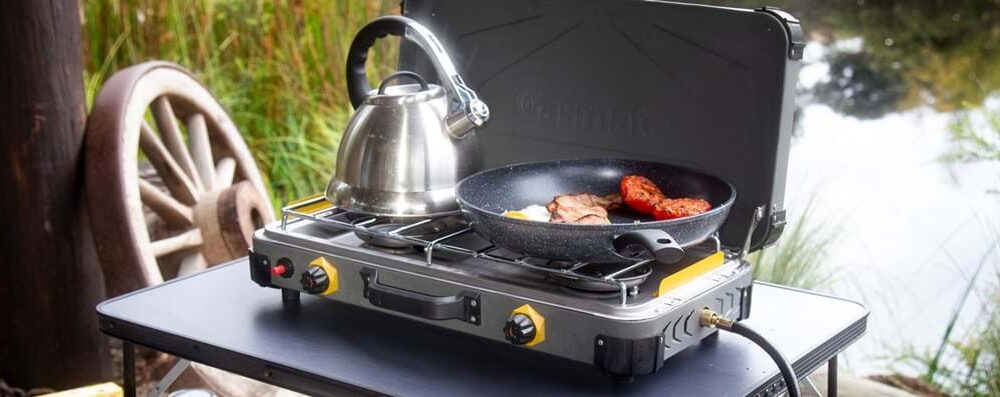Introduction
For heating in households or commercial settings, propane and natural gas stand as two preferable choices. Both fuels are widely utilized for heating, cooking, and powering different appliances. Although some people may consider them similar, they differ significantly in terms of their characteristics. Natural gas results from the reactions taking place within the Earth’s surface. Conversely, propane is a byproduct of natural gas processing and oil refining. Yet, the persistent question remains, which burns hotter? Let’s explore the differences between propane vs natural gas, considering their performance, efficiency, cost-effectiveness, and other factors to answer our question.

Propane Stoves Versus Natural Gas Stoves
Before finding an answer to the question about heat comparison, understanding the basic differences between propane and natural gas stoves is vital. Propane stoves are used with propane gas stored in portable tanks, whereas natural gas stoves are connected to a fixed gas line that supplies natural gas from utility companies.
Assessing the Influence of Fuel Types on Stove Performance
The type of fuel used to operate stoves has a significant impact on the stove’s performance. Propane generates 2.5 times more heat than natural gas when burned. It produces more intense flames than natural gas, resulting in higher temperatures. As propane is denser than air, it releases more energy per cubic foot. This means that natural gas is a less efficient fuel in comparison to propane.
Benefits and Drawbacks of Using Propane or Natural Gas
Natural gas supply is brought to homes through direct pipelines from utility providers. This restricts users from utilizing natural gas in areas where the gas lines are not available. However, natural gas tends to be cheaper and more convenient for households connected to gas grids. Alternatively, propane comes in tanks which makes it portable. It is ideal for outdoor activities or areas with an absence of gas pipelines. Moreover, Propane also releases fewer greenhouse gases which makes it a cleaner fuel compared to natural gas.
Comparing the cost-effectiveness of Propane and Natural Gas
The economic efficiency between propane and natural gas stoves depends on various factors, including geographic location, market rates, and accessibility. Generally, natural gas tends to be more economical for house use with access to gas pipelines, eliminating the need for extra effort such as tank refills and delivery services.
On the other hand, propane installation and maintenance often result in additional expenses associated with tank sizes, refills, and delivery fees, especially in areas where propane infrastructure is developed poorly.
Impact of Fuel Types on Efficiency
Propane is more efficient in comparison to natural gas. Propane has a higher energy density which means that it produces heat more efficiently, making it ideal for commercial applications. Natural gas heat levels depend on gas flow rates which results in increased energy consumption with time.
In terms of maintenance, propane tanks require regular refills. However, once installed, natural gas does not require refills because the supply is continuous from the utility companies. This means that natural gas requires less effort comparatively. However, its lower energy density leads to lower heat output compared to propane.
Conclusion
In the debate between propane and natural gas, the decision on which burns hotter ultimately comes down to their properties and applications. While propane is superior in terms of heat output and portability, natural gas excels in terms of affordability and accessibility.
Whether you are planning an outdoor cooking activity or considering the convenience of a fixed gas line, remember to consider the factors discussed above. Both propane and natural gas offer excellent heating solutions, and your decision between the two will depend on your specific preferences.


